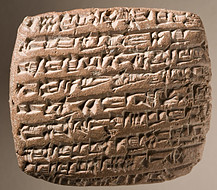
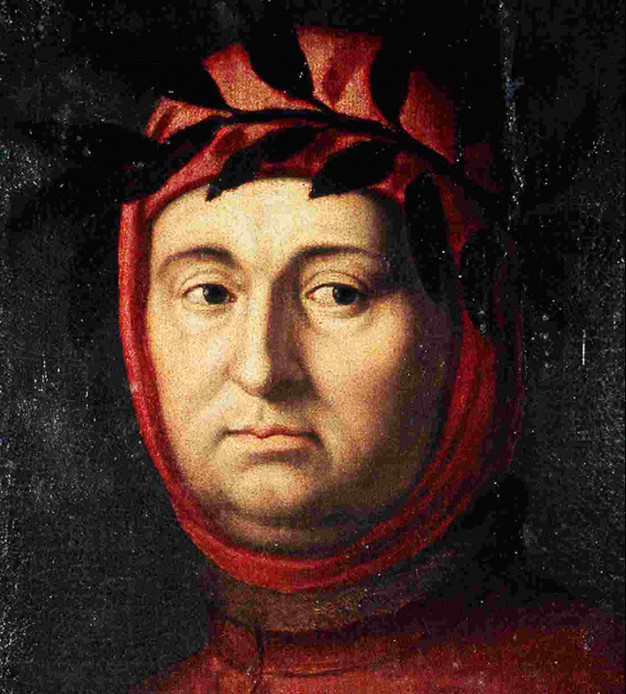
The Evolution of the Love Sonnet
It was usual for many 16th century sonneteers to continue the tradition of love poetry, wherein they lamented their heartbroken emotional state and unrequited love. The originality of their verses was astounding and became a competition of sorts. A man born in the 14th century, known as Francesco Petrarch was their respected inspiration. In his own time, he inspired many to read and write. Over two hundred years after his death, some of the greatest sonneteers strove to achieve, and in some cases, surpass his level of greatness. Petrarch wrote three hundred and sixty six love sonnets dedicated to his unattainable love, Laura. His sonnets were in awe of her supernatural beauty, grace, and elegance. He also made a craft of lamenting his own miserable state and the misfortune handed to him by life, fate, and circumstance. For many reasons, (particularly artistic) Laura could not be his.
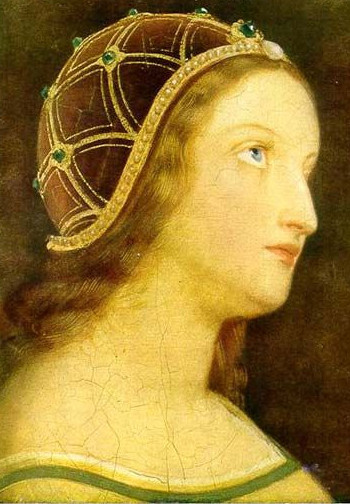 (an artistic rendition of Petrarch’s beloved Laura)
(an artistic rendition of Petrarch’s beloved Laura)
Approximately three hundred years later, William Shakespeare sought to innovate the theme of love sonnets, and made the object of his affection a young man, to whom he would proffer wise advice, and affectionate compliments. His other object of affection was a mysterious dark woman. This particular variation set Shakespeare apart, as did his description of her and his state regarding her. Whereas Laura was the blonde-haired, grey-eyed ideal of beauty, possessing topmost qualities of charm, intelligence, and grace, Shakespeare’s “dark lady” was a mystery of sorts. Shakespeare’s speaker held her in high regard, yet the quality of his descriptions did not appear to be most complimentary.
Petrarch’s 339th sonnet begins with a divine realization:
I knew, when Heaven opened my eyes,
when I learnt and Love unfurled my wings,
new gracious things, but mortal,
that the stars showered on one alone: (1-4)
The opening lines suggest that only something celestial could make him see the brilliance of his beloved. “Love unfurl[s] [his] wings” (2), and this line gives us the impression of a newly born angel bestowed the grace of a wondrous sight of such enormous magnitude, that you have to be an immortal to witness it. Even with the divine blessing, he cannot fathom all of her qualities, and he categorizes the ones he does see as “mortal” (3). She is alone in the gifts bestowed upon her persona and therefore unique and apart from every other woman. This is a gorgeous beginning and gives clear indication that this will be a lovely exultation of the speaker’s beloved. In comparison with Shakespeare’s beginning, it is easier to guess the course of the remaining lines.
Shakespeare’s love was far from the conventional ideal. In “My mistress’ eyes are nothing like the sun”, Shakespeare appears to berate his lover, comparing ways in which considered objects of grandiose beauty are not at all like his mistress. At times, his description of her uses ugly words, and paints her in a seemingly common, ordinary way. The first reading of the sonnet induces the question of whether it is a love sonnet at all. It is possible to look at it as a satire on love sonnets in general, and perhaps a harsh criticism of the woman he supposedly loves. Yet, there is a lingering sense of admiration, as even some small words seem to indicate that there may be a genuine and loving affection. There are interposed lines hinting at a strong feeling, foreshadowing the powerful ending. Shakespeare forces the reader to question the love of perfection, and provides a very realistic alternative. He opens up the possibility that a human being is more capable of loving someone equally human, and because of that particular humanity, no less unique than a golden goddess floating in the sky of our dreams and regrets. This is a love sonnet, illustrating a depth of feeling, and genuine affection through a different and unique form of expression. It uses the conventions of the time and turns them around to portray a dissimilar love, a love not based on unrealistic comparisons and inconceivable standards.
The title of this sonnet takes is back to the usual comparisons between the object of affection and the sun. In romantic fashion, both shine on our minds and hearts, and fill us with energy and warmth. Shakespeare’s beginning line points out, that in a literal sense, the sun has little in common with the beloved’s eyes. While the beloved’s eyes can fill us with figurative warmth of emotion and can appear to “glow” in a distorted manipulation of the senses, the sun literally bequeaths heat and light upon the earth and other planets.
In the second line, the speaker disparages another familiar comparison and states “Coral is far more red than her lips’ red:” (2). Red is the color of passion and figuratively relates to heat in the same way as the sun. Red coral is a stony piece of skeleton possessing a rouge complexion and is used for ornamentation as jewelry. Regular coral is deeply pink and is factually redder than the mistress’s lips. We can conclude, therefore, that her lips are almost bloodless and pale.
In what is a complete reversal, Petrarch does not dote so sharply on purely physical description in comparison with traditional objects of beauty. His description of his beloved is otherworldly, and has the element of a dream:
the rest of her was so other, so various
in form, noble, heavenly and immortal,
that my intellect was all unequal to it,
my weak sight could not endure it. (5-8)
There is a heavy emphasis on his beloved’s “other [ness]” (5), she is “various in form, noble, heavenly and immortal” (6-7). This is a very stacked compliment, as she embodies perfection in every sense. She is god-like and awes him into a state of weakness through absolute and sheer flawlessness. The reader understands that the speaker is not the only one unable to “endure” (8), the brilliance of the beloved. She shines above everyone else, through the compliments of lines 5 and 6, and his “unequal intellect” (7) and “weak sight” (8) easily attributes itself to the reader. His description of her is purposefully vague, to enforce the idea that it is beyond humanity’s power to realize the glory of her being and existence. The speaker of this sonnet is not in control and lines 7 through 8 signal a breakdown. In a very stark contrast, Shakespeare’s speaker seems very calm, when further providing a detailed description of his mistress’s appearance.
Lines 3 through 4 describe the quality of hair and snow in relation to the speaker’s mistress, as he pronounces, “If snow be white, why then her breasts are dun; / If hairs be wires, black wires grow on her head” (3-4). In the romantic sonnet, beauty is typically associated with fair skin and blonde hair. Therefore, the objects compared with the beloved are usually those that reflect those qualities. Snow is associated with pure and fresh fairness, and the speaker contrasts this color with the shade of his mistress’s bosom, which he calls “dun” (3). Dun is a yellowish, darker color, and not considered the standard of beauty. Next, the speaker evokes the similarity between hair and wires, and states that “black wires grow on [his mistress’s] head” (4). The imagery here does appear to be somewhat disparaging, as the growth seems to take the shape of an intertwining, thread like, and enveloping creature. The word “on” (4) seems to point to an inclining upwards growth. The word “wires” (4) is ugly and makes one think of cuts, and rough metal. Another point of shock is that her wires/hairs are black, a difference from the traditional blonde beauty ideal, celebrated by so many other sonneteers.
Damask roses are sweetly aromatic and possess a silky quality. When comparing his beloved’s cheeks to the roses, the speaker declares, “I have seen roses damask’d, red and white, / But no such roses see I in her cheeks;” (Shakespeare 5-6). This comment points out the quality of a damask rose and specifies that no such quality is observed on the cheeks of his mistress. She does not have a rose-like blush emanating from her face and may be rather ordinary in complexion. The next two lines continue on the theme associated with fragrance, and state “And in some perfumes is there more delight / Than in the breath that from my mistress reeks” (7-8). Notice, that the speaker uses the word “some” when saying that there is more delight in a few more perfumes than in his mistresses’ breath, indicating that his mistress’s breath is possibly superior to a few other perfumes. It is curious that he describes the breath as reeking. It is possible that “reek” signifies smoke, but generally, the word produces the association of a disagreeable, rancid odor. It is possible that his mistress suffers from halitosis. Petrarch’s speaker would be reasonably aghast at such a description, and would rather dwell on the amazing and unimaginable state of his beloved.
In opposition to Shakespeare’s speaker, who seems to be intimately familiar with every crevice of his mistress and casually recounts her apparently negative qualities, Petrarch’s speaker is far from his love’s goal. His love is not near enough for him to dissect her features and he must ponder of his relation to her from a distance. She knows his thoughts, but can never accept his praise or love. In fact, his love of her could be considered a sin, as it would be between a mortal man and an immortal angel:
And whatever I have said of her or written,
so that now for that praise she prays to God
for me, was a little drop in an infinite ocean: (9-11)
There is a tenderness in her prayers for him that is beautiful and touching. She “prays” (10) for him and his kind appreciation, yet painful folly. She understands that he is enamored beyond reason and desires heavenly reprieve for his affected mental state. There is no callous familiarity here and it purports a mutual respect that is not easily evinced in Shakespeare’s sonnet. For Petrarch’s speaker it is a “little drop in an infinite ocean” (11), that his beloved cares enough to pray for him. The “little drop” (11) also signifies just the smallest part of her virtue and quality amongst an “ocean” (11) of incomparable wealth of beauty and virtue encapsulating her whole being. His love of her lacks subtlety and understands no bounds. It is a clear and piercing admiration without restraint. Shakespeare manages to somewhat admit that he loves to hear his love speak on line 9.
Shakespeare’s speaker exclaims, “I love to hear her speak, – yet well I know / That music hath a far more pleasing sound;” (9-10). This is a polite assessment of his situation, as he genuinely likes the sound of her voice, but admits that in comparison the sound of music is superior. However, the start of that line is very powerful and direct, and eclipses what might seem as negative language and imagery before this line. He strongly and directly, without the use of subtle hints or indirect allusions asserts his love for her voice. The first line is bold and dynamic, yet follows with a slowing dash and reflection, “- yet well I know”(9). It seems similar to a sad admission or an unwanted confession. It illustrates the honesty of the speaker, as he is not one to exaggerate or create falsity, as is seen throughout the rest of the sonnet.
The lines after, again bring up a famous point of comparison for Petrarch and most other sonneteers. In Petrarch’s sonnet, the beloved having the qualities of a goddess help make her appear even more unattainable and grand, as this inserts a spiritual value into the professed love and give it the feeling of a holy quest. The goddess aspect also diminishes the speaker of this sonnet and gives us powerful imagery of something small and insignificant pleading to something of an unimaginable magnitude. The beloved, figuratively becomes larger than life and conquers the speakers mind, soul and body. Shakespeare’s speaker is not quite as dramatic when he asserts, “I grant I never saw a goddess go, / My mistress when she walks, treads on the ground;”(11-12). The usual associations of a goddess include the quality of hovering or floating encircled in a shining halo that blinds the vision and deafens the senses. The speaker admits that such a comparison would be possible, yet as he has never seen a goddess, he would be unable to compare. He still maintains that there is nothing special about the walk of his mistress. She simply steps and walks as any other mortal human being. Could this be an exaltation of her humanity?
Petrarch ends his sonnet with an idealism far out shirking the plain or ordinary. His speaker sadly laments his fate of incomparability to his love, yet understands, and admires the glory of his beloved:
because our style cannot rise beyond our wit:
and when a man fixes his eyes on the sun,
the brighter it shines the less that he can see. (12-14)
Line 12 alludes to his shortcomings and forces us to acknowledge ours, in order to understand the futility of attaining something greater than naturally deserved. A mortal cannot attain the status of an immortal. A shrub cannot grow into a tree. When something that you look upon blinds you, you will never envision it in its full glory and likeness. His beloved is above and beyond him in every sense. The lapse between them is too great and therefore poetically tragic and beautiful. In his sonnet, Petrarch has elevated his beloved and diminished himself to elevate her even farther. Shakespeare’s ending differs dramatically in that he seems to have a grasp of his love. It is possible that he does not and simply extols her human qualities in his own manner. His claim is that this is no less important than a usual ideal and glorifies the unique aspect of his situation.
The last lines sum up Shakespeare’s speaker’s sentiments and it can be argued that the second to last line contains the volta of the sonnet. The speaker stops describing the qualities of his beloved and instead strongly asserts his strong feeling in saying “And yet, by heaven, I think my love as rare / As any she belied with false compare” (13-14). His exclamation to the heavens is a strong one, and when he calls his love rare, it invokes a feeling of something that is unusual or infrequent. The word can also describe something that is valuable and amazing, therefore having a rare quality. The last line induces the thought that his love is as rare as her consideration for the compliments that are false and lack veracity. There is a clear turn here and the feeling is that of reconciliation.
His mistress does not require common and unrealistic flattery, and is prone to scorn it. Her qualities might not be the standard of an epically amorous love sonnet, but this is not indicative of a lack of another type of beauty. Her hair is black, her cheeks lack fullness, freshness, her breath is not always the best, and her voice might be of a drawling, hoarse pitch. She is unlike the standard of beauty and therefore even more so captivating. An exoticism is attributed to her, and false compare would be an injustice to her true features and attributes. It is as possible that the speaker owns her love, as it is feasible that he cries out for her without response. The speaker of the sonnet does not tell us this, and leaves it for us to fill in the facts according to the comparison of what she is not. Not once does he tell us she is ugly or in any way deficient. Even if she is, it does not detract from the fact that his love is rare, and more importantly, existent. It is possible that this is both a criticism and a satire on the traditional love sonnet, but even that does not change the power, somberness, and sincerity of the last two lines. Shakespeare makes us analyze the worth of comparing a certain beauty to something fantastic and awe-inspiring. The speaker loves in spite of the lack of Petrarchan values, and loves for the sheer humanity inherently present within his mistress. This is not a romantic declaration of love, but rather a brutally honest one. Shakespeare defies custom and convention and cries out for his right to love someone who is herself; even if this is, something not meant for her to read.
As unique as Shakespeare was, his inspiration for the form and theme lies in the origins of the sonnet form and theme. Petrarch’s genius lay not only in his astounding praise, but also in his extraordinary laments, the likes of which showed a subtle, and sometimes fierce resentment of his lovely beloved. He wailed about being imprisoned by love’s shackles, tortured by his own exquisite emotion, and beguiled by a cruel fate’s nasty whims. It was not easy for Petrarch’s speaker to be in love with an immortal goddess possessing the perfect figure, with skin that was pale and fresh as the morning snow, shining blonde hair, lips as red as ruby, and a brightness of expression and being eclipsing the sun itself. This was truly the ideal of a woman, and many sonneteers after Petrarch infused these faultless qualities into the name and being of their own beloved. The sonneteers also refined this love and turned it into something of their own, as demonstrated so aptly by Shakespeare, whose unique love might serve as an inspiration for many to follow.
Compare for yourself. Below is Petrarch’s sonnet, followed by Shakespeare.
339. ‘Conobbi, quanto il ciel li occhi m’aperse,’
By: Petrarch
I knew, when Heaven opened my eyes,
when I learnt and Love unfurled my wings,
new gracious things, but mortal,
that the stars showered on one alone:
the rest of her was so other, so various
in form, noble, heavenly and immortal,
that my intellect was all unequal to it,
my weak sight could not endure it.
And whatever I have said of her or written,
so that now for that praise she prays to God
for me, was a little drop in an infinite ocean:
because our style cannot rise beyond our wit:
and when a man fixes his eyes on the sun,
the brighter it shines the less that he can see.
Sonnet 130: My mistress' eyes are nothing like the sun
By: William Shakespeare
My mistress' eyes are nothing like the sun;
Coral is far more red than her lips' red;
If snow be white, why then her breasts are dun;
If hairs be wires, black wires grow on her head.
I have seen roses damasked, red and white,
But no such roses see I in her cheeks;
And in some perfumes is there more delight
Than in the breath that from my mistress reeks.
I love to hear her speak, yet well I know
That music hath a far more pleasing sound;
I grant I never saw a goddess go;
My mistress, when she walks, treads on the ground.
And yet, by heaven, I think my love as rare
As any she belied with false compare.
Author: Kristap Baltin – kristapbaltin.com
A great compilation of Shakespeare’s complete poem and sonnets can be found here.









 What the Ship From Delos might have looked like.
What the Ship From Delos might have looked like.
 Oracle of Delphi
Oracle of Delphi



 (an artistic rendition of Petrarch’s beloved Laura)
(an artistic rendition of Petrarch’s beloved Laura)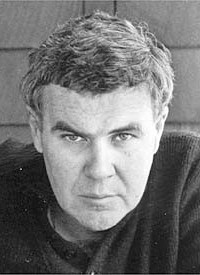

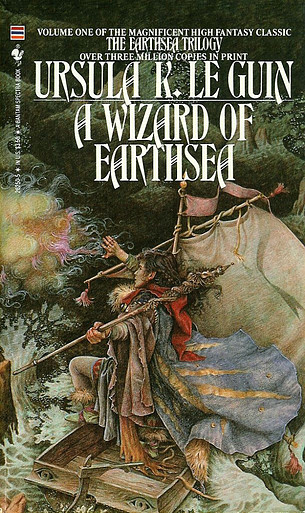
 The Tears of Episodic Laughter
The Tears of Episodic Laughter